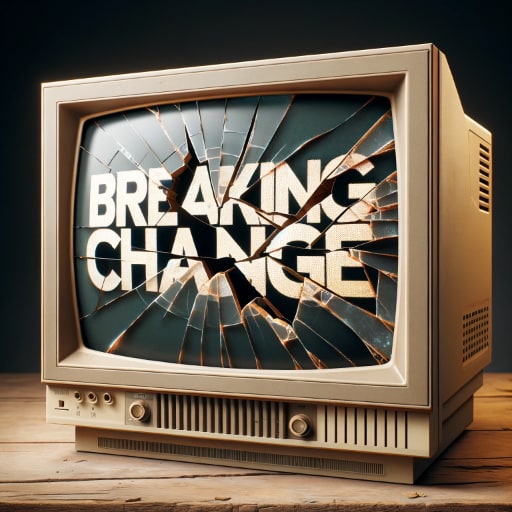I don't normally do this, but content warning, this episode talks at length about death and funerals and, while I continue to approach everything with an inappropriate degree of levity, if that's something you're not game to listen to right now, go ahead and skip the first hour of this one.
Recommend me your favorite show or video game at podcast@searls.co and I will either play/watch it or lie and say I did. Thanks!
Now: links and transcript:
- Kirkland Signature, Organic Non-Dairy Oat Beverage
- Die with Zero book
- The "Prefer tabs when opening documents" setting
- Aaron's puns, ranked
- Amazon hoped more people would quit
- BoldVoice Accent Oracle
- Cab drivers get Alzheimer's less
- Video Games Can't Afford to Look This Good
- LG announces Bachelor's Only TV
- Can the rich world escape its baby crisis?
- Why aren't we talking about the real reason male college enrollment is dropping?
- The Diplomat
- The Penguin
- It's in the Game Madden documentary
- Like a Dragon / Yakuza 7
- Indiana Jones and the Great Circle
Podcast RSS Item XML
<item>
<guid isPermaLink="false">EEMCZpi0G9gWtSAScOwZg5Tx</guid>
<pubDate>Sat, 04 Jan 2025 20:37:34 +0000</pubDate>
<title>v28 - Do you regret it yet?</title>
<itunes:title>v28 - Do you regret it yet?</itunes:title>
<itunes:episode>28</itunes:episode><itunes:image href="https://justin.searls.co/img/podcast/breaking-change.jpg" />
<itunes:author>Justin Searls</itunes:author>
<itunes:duration>02:24:46</itunes:duration>
<podcast:person role="host" href="https://justin.searls.co/about/" img="https://justin.searls.co/img/face.jpg">Justin Searls</podcast:person>
<enclosure url="https://podcast-cdn.searls.co/breaking-change/v28.mp3" length="138989322" type="audio/mpeg"/>
<link>https://justin.searls.co/casts/breaking-change-v28-do-you-regret-it-yet/</link>
<description><![CDATA[<p>I don't normally do this, but <strong>content warning</strong>, this episode talks at length about death and funerals and, while I continue to approach everything with an inappropriate degree of levity, if that's something you're not game to listen to right now, go ahead and skip the first hour of this one.</p>
<p>Recommend me your favorite show or video game at <a href="mailto:podcast@searls.co">podcast@searls.co</a> and I will either play/watch it or lie and say I did. Thanks!</p>
<p>Now: links and transcript:</p>
<ul>
<li><a href="https://www.costco.com/kirkland-signature%2C-organic-non-dairy-oat-beverage%2C-32-oz%2C-6-count.product.100638343.html">Kirkland Signature, Organic Non-Dairy Oat Beverage</a></li>
<li><a href="https://www.amazon.com/Die-Zero-Getting-Your-Money/dp/0358099765">Die with Zero</a> book</li>
<li>The "<a href="https://support.apple.com/lv-lv/guide/mac-help/mchlp1119/mac">Prefer tabs when opening documents</a>" setting</li>
<li>Aaron's <a href="https://justin.searls.co/puns/">puns, ranked</a></li>
<li><a href="https://arstechnica.com/tech-policy/2024/12/amazons-rto-delays-highlight-why-workers-get-so-mad-about-mandates/">Amazon hoped more people would quit</a></li>
<li><a href="https://start.boldvoice.com/accent-oracle">BoldVoice Accent Oracle</a></li>
<li><a href="https://archive.ph/9oqkn">Cab drivers get Alzheimer's less</a></li>
<li><a href="https://archive.is/vtfDf">Video Games Can't Afford to Look This Good</a></li>
<li><a href="https://www.theverge.com/2024/12/29/24331748/lg-ultragear-gx9-bendable-oled-5k2k-monitors-specs">LG announces Bachelor's Only TV</a></li>
<li><a href="https://archive.md/cJY3B#selection-1265.2-1265.133">Can the rich world escape its baby crisis?</a></li>
<li><a href="https://celestemdavis.substack.com/p/why-boys-dont-go-to-college">Why aren't we talking about the real reason male college enrollment is dropping?</a></li>
<li><a href="https://en.wikipedia.org/wiki/The_Diplomat_(American_TV_series)">The Diplomat</a></li>
<li><a href="https://en.wikipedia.org/wiki/The_Penguin_(TV_series)">The Penguin</a></li>
<li><a href="https://www.theverge.com/24306628/madden-documentary-its-in-the-game-review-amazon-prime-video">It's in the Game</a> Madden documentary</li>
<li><a href="https://en.wikipedia.org/wiki/Yakuza:_Like_a_Dragon">Like a Dragon / Yakuza 7</a></li>
<li><a href="https://en.wikipedia.org/wiki/Indiana_Jones_and_the_Great_Circle">Indiana Jones and the Great Circle</a></li>
</ul>]]></description>
</item>
